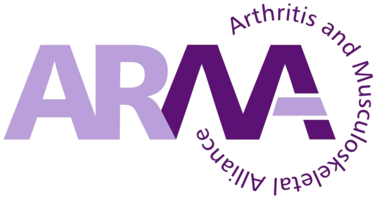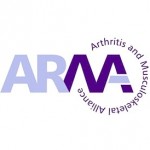
Joint statement from professionals and patients on MSK services in the event of a second wave of Covid-19
With cases of Covid-19 rising and the prospect of increased pressure on hospitals this winter as a result, it will be unacceptable for the NHS to respond to this by treating only urgent and emergency cases in musculoskeletal (MSK) services.
As organisations representing patients and professionals, we recognise that this was a necessary response in spring of this year. However, it came at significant cost to patients’ physical and mental health, and the resulting suffering will continue for many months, perhaps years, to come. People needing surgery such as joint replacement, people needing to see rheumatology specialists and people needing access to community MSK services were all hit hard in the effort to ensure that the NHS could respond to Covid-19 patients.
With the benefit of all the learning of the last six months, the NHS needs to ensure that pathways for MSK patients are kept open as much as possible. There have been many beneficial innovations in MSK services in response to the virus which will help maintain services. Services also need to make the maximum possible use of available resources to support self-management including patient support groups, such as our patient member organisations, who can help ease the pressure on the NHS. The government must act to ensure that the NHS has the testing service it needs, and steps are taken to manage infection rates, so that the NHS does not see the suspension of much of its core services.
Before the pandemic, many MSK services, and especially joint replacement waiting times, were falling well short of targets. This situation is now significantly worse with much longer waiting times, backlogs of missed appointments and concerns that people with serious conditions may not have yet been able to access diagnosis, still less treatment. In England as at the end of July, there were over 36,000 people were waiting more than 18 weeks for rheumatology treatment. There were also over 320,000 people who have been on the waiting list for over 18 weeks for trauma and orthopaedic care, including joint replacement surgery. They are likely to be in considerable pain, with reducing mobility and experiencing deterioration of their overall physical and mental health.
“If my RA continues to worsen this may impact my chances of remission. Just prior to lockdown we were discussing changing my meds; that is off the table for the foreseeable.”
(Person living with Rheumatoid Arthritis)
Delays in treatments lead to much poorer outcomes, with a long-term impact on people’s ability to remain active and in employment and to manage their general health. Delays in diagnosing inflammatory and autoimmune conditions can lead to irreversible damage with long term impact on the individual and cost to the NHS of subsequent treatment. Delays in accessing joint replacement surgery result in worse outcomes and deterioration in general health and fitness.
“I feel I’ve been forgotten about. I have so many questions as I was diagnosed in February 2020, and it was while I wasn’t able to have a face-to-face appointment at the doctors, so he told me on the phone and wasn’t helpful at all. I’ve been told the diagnosis but with no info regarding what to do next – I desperately need advice on what next with medication or physio but I’m just waiting and waiting.”
(Person living with Axial Spondyloarthritis)
“I’m generally an upbeat person so I’ve been able to deal with it, but it’s becoming hard to keep going physically and mentally.”
(Person living with rheumatoid arthritis, osteoarthritis and asthma.)
Inability to access community MSK services leads to reduction in function and muscle strength and increased pain. These services are already under additional pressure due to post-Covid rehabilitation and the impact of lockdown on people’s MSK health. In this context, redeployment of significant numbers of community MSK staff to respond to a second wave is untenable.
MSK health, and therefore MSK services, are vital to people’s ability to live healthy and active lives. It would be unacceptable for MSK services to be expected to shut down, and people with MSK conditions to face the same inability to receive the treatment they need, a second time.
ARMA Members:
- Arthritis Action
- BackCare
- British Association of Sport Rehabilitators and Trainers
- British Chiropractic Association
- British Dietetic Association
- British Orthopaedic Association
- British Society of Rehabilitation Medicine
- Chartered Society of Physiotherapy
- College of Podiatry
- Ehlers-Danlos Support UK
- Faculty of Sport and Exercise Medicine
- Fibromyalgia Action UK
- Hypermobility Syndrome Association
- The Institute of Osteopathy
- Musculoskeletal Association of Chartered Physiotherapists
- National Axial Spondyloarthritis Society
- National Rheumatoid Arthritis Society & JIA
- Podiatry Rheumatic Care Association
- PolyMyalgia Rheumatica and Giant Cell Arteritis UK
- Primary Care Rheumatology Musculoskeletal Medicine Society
- Psoriasis Association
- Rheumatology Pharmacists UK
- Royal College of Chiropractors
- RCN – Rheumatology Forum
- Scleroderma & Raynaud’s UK
- Society of Musculoskeletal Medicine
- Society of Sports Therapists
- UK Gout Society
- Versus Arthritis

